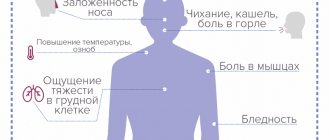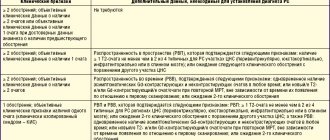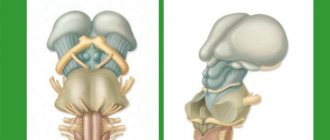Causes of dysphagia
To move food from the oropharynx to the stomach, the muscular structure of the esophagus must be in constant tone. But there are reasons that disrupt this natural process. One of the causes of dysphagia is the inability of the muscles and nerves that move food through the esophagus to perform their functions. Factors that provoke this condition are the following: head or spinal injury; suffered a stroke; some diseases, for example, achalasia (a chronic disease of the neuromuscular apparatus of the esophagus), Parkinson's disease, muscular dystrophy, multiple sclerosis, post-polio syndrome; diseases of the immune system that cause inflammatory or tumor processes; dermatomyositis (muscle disease), polymyositis; spasm of the esophagus; scleroderma, which causes stiffness in the tissues of the esophagus. One of the common causes of dysphagia is a blockage of the esophagus. It can occur under the influence of many factors.
- Gastroesophageal reflux. Some people develop weakness of the cardia of the stomach. In this case, gastric juice along with the contents of the stomach is thrown into the esophagus. An ulcer of the esophagus is formed, which then scars, which contributes to the narrowing of the esophagus and disruption of its elasticity.
- Dissection of esophageal tissue. This pathology can be congenital or acquired.
- Esophagitis. This is an inflammation of the mucous membrane of the esophagus, which is caused by infectious diseases, allergic reactions of the body, irritation due to a tablet stuck in the esophagus.
- Esophageal diverticulum. This cause of dysphagia means bulging of the esophagus. May be congenital or acquired. 5. Benign or malignant tumors of the esophagus.
- Tumors compressing the esophagus from the internal organs, for example, a bone spur on a vertebra, lymph nodes.
- Age-related aging of the body. It is the most common cause of esophageal dysphagia in older adults. With age, all human muscles lose tone, including the muscles of the esophagus.
Diagnostics
Patients with complaints of the inability to swallow should be examined by a physician, ENT specialist and surgeon. If, during examination, they find “their pathology,” then treatment will need to be carried out on them - to eliminate the cause of the disruption of the normal functioning of the pharynx and esophagus.
In the absence of diseases from the internal organs, the next step should be to consult a neurologist. He must clarify whether there are any disturbances in the condition of the nerve fibers supplying the pharynx and esophagus.
If all these doctors do not find any diseases, then you should consult a psychiatrist or psychotherapist.
Symptoms of the disease
Symptoms of esophageal dysphagia indicate problems with the movement of food through the esophagus into the stomach. Moreover, the act of swallowing itself does not cause any pain. But after the patient feels a lump, there is a feeling of fullness in the back of the sternum. Typically, symptoms of dysphagia do not include severe pain. Pain is possible only in the case of diffuse spasm of the esophagus. The main symptoms of dysphagia can be identified: impaired movement of food into the esophagus at the level of the oropharynx, which is accompanied by the reflux of a lump into the oral or nasal cavity; feeling of suffocation; coughing; excessive salivation; aspiration pneumonia (inflammation of lung tissue that appears in them when a foreign agent penetrates); inability to swallow food or the need to make great efforts to swallow a bolus of food. Most often, symptoms of esophageal dysphagia are caused by eating solid foods, especially at the onset of the disease. Washing down food with water makes the swallowing process much easier. Ingestion of liquid food is usually easier, although in some types of the disease signs of dysphagia accompany even swallowing water. If you think that you have dysphagia and the symptoms characteristic of this disease, then you should seek advice from a gastroenterologist or neurologist.
Diagnosis and treatment of dysphagia
In diagnosing dysphagia, it is very important to determine the cause that led to the development of this disease. First of all, gastroenterological examination is used, in particular, fibrogastroduodenoscopy (FGDS). FGDS is an endoscopic research method that makes it possible to see the mucous tissue of the upper part of the gastrointestinal tract. In this case, a specialist can examine the resulting pathology. In the case when, when diagnosing dysphagia, the doctor discovers an ulcer or tumor, a biopsy is taken, followed by histological analysis. If symptoms of esophagitis are present, bacteriological culture of the contents of the esophagus is done to identify the causative agent of the disease. In cases where it is determined that the cause of dysphagia is not pathology of the gastrointestinal tract, the patient is referred for a neurological examination. Treatment of dysphagia is carried out simultaneously with treatment of the underlying disease. In many cases, emergency care is required for acute manifestations of the disease. For example, when throwing a lump of food into the nasal cavity, you must first clear the person’s airways of food that has entered them. After this, dysphagia is treated in an inpatient setting. In severe cases of the disease, food and water are introduced into the esophagus using a tube. Treatment of dysphagia, which is caused by esophagitis (inflammation of the esophagus), is carried out using antacid aluminum-containing drugs. Such drugs that reduce stomach acidity include Almagel, Phosphalugel, Zantac and other drugs. A person with dysphagia must follow a special diet and eating habits. Food should be taken in small portions, fractionally. Dry and hasty meals are prohibited. Food should not be hard or dry. You can go to bed no earlier than two hours after eating. The diet used in the treatment of dysphagia should contain food that is easy to digest. It excludes hot, spicy, smoked, fried, fatty foods, coffee, strong tea, and fizzy drinks. Preference is given to a dairy-vegetable diet.
Dysphagia
Dysphagia: symptoms, treatment
Dysphagia is a swallowing disorder.
The patient cannot eat or drink normally. A bolus of food does not pass through the esophagus. One of the characteristic symptoms of dysphagia is that liquids and saliva are more difficult to swallow than solids. Esophageal dysphagia is not an independent disease - it is always a secondary condition caused by other pathologies. Difficulty swallowing occurs in patients of all age groups. In the absence of adequate treatment, the patient’s quality of life decreases sharply, and dangerous complications develop, including death.
Causes of dysphagia
- Mechanical compression of the pharynx or esophagus
. The cause of dysphagia can be tonsillitis, enlargement of the thyroid gland, lymph nodes, the development of cervical osteophytes, cricopharyngeal adhesions. Narrowing is also observed with cancerous tumors of the oral cavity, larynx, muscle fibrosis and after surgery. - Neuromuscular disorder
. The act of swallowing is impaired in almost every second patient who has suffered a cerebral stroke. The severity of dysphagia depends on the extent of the process. Complaints of difficulty swallowing food are also observed in Parkinson's disease, multiple sclerosis, pseudoparalytic myasthenia gravis, and achalasia cardia (chronic spasm of the esophagus). - Esophageal pathologies
. The cause of acute narrowing of the esophagus can be Quincke's edema, a foreign body entering the pharynx, or a chronic disease of the digestive system or mediastinum. Swallowing disorders are accompanied by achalasia, systemic scleroderma, and diabetes mellitus. Dysphagia may develop due to the intake of estrogens and nitrate-containing substances and drugs.
Forms of the disease
Based on anatomical location, there are two types of dysphagia:
- Oropharyngeal (oropharyngeal). The patency of the pharynx and throat - the upper sections - is impaired.
- Esophageal. The bolus of food cannot pass to the stomach.
Classification according to the severity of symptoms:
- I degree – difficulty swallowing solid pieces of food.
- Stage II – the patient can only consume liquid food.
- III degree – swallowing of food and saliva is impaired.
- IV degree – complete obstruction of the esophagus.
Symptoms of dysphagia
In the initial stage, patients complain of discomfort in the throat and esophagus. Mild symptoms of dysphagia are rarely paid attention to, which leads to progression of the disease.
A feeling of fullness in the chest gradually develops, and salivation increases. Complaints of dysphagia include a dry cough, change in voice, and sore throat. With prolonged disturbance, the patient loses weight, becomes weak, and may experience digestive problems.
If treatment of the underlying disease is not started in a timely manner, dysphagia can provoke degeneration of the mucosal epithelium with the formation of a tumor. Many patients develop aspiration pneumonia due to food particles entering the respiratory tract. With dysphagia caused by compression of the pharynx by a tumor, acute respiratory distress may develop, which requires emergency medical attention.
Diagnostics
The initial examination of the patient is carried out by a gastroenterologist, who may additionally recommend consultation with an otolaryngologist, dentist, or endocrinologist. The key task of diagnosis is to find the causes of the disorder.
The patient is prescribed a comprehensive examination:
- Pharyngoscopy. Examination of the patient's pharynx reveals pharyngitis, tonsillitis, neoplasms of the upper digestive system, and a stuck foreign body.
- X-ray of the esophagus. To diagnose dysphagia, images are taken with contrast. X-ray helps to establish the presence of diverticula and determine signs of changes in esophageal motility.
- Esophagogastroscopy (EGD). During the examination, the doctor examines the mucous membrane of the esophagus and cardiac parts of the stomach. The EGDS image allows you to detect erosion and microcracks.
- Clinical blood test. Changes in results are consistent with the underlying disease. An increase in ESR and a decrease in hemoglobin levels are possible.
Treatment of dysphagia
Therapy is prescribed taking into account the causes of the pathology and the severity of the symptom.
Treatment of acute dysphagia, which usually occurs with mechanical obstruction, consists of removing the foreign body or relieving Quincke's edema. Long-term swallowing disorder syndrome requires careful selection of medications.
The doctor may prescribe:
- Medicines to improve nervous regulation. Patients with parkinsonism are prescribed dopamine precursors and agonists, specific drugs. Stroke requires complex therapy with neuroprotectors and membrane stabilizers. For myasthenia gravis, anticholinesterase drugs are prescribed.
- Calcium channel blockers. A group of drugs reduces the concentration of ions in muscle fibers. As a result, spasticity of the esophageal muscles decreases and its patency improves.
- Antisecretory drugs. The drugs are used in cases where dysphagia is accompanied by eosinophilic esophagitis. The administration of local steroid drugs or proton pump inhibitors reduces irritation of the mucous membrane and promotes its healing.
- Antibacterial or antiviral agents. Indicated for confirmed infectious nature of dysphagia.
Diagnosis and treatment of esophageal dysphagia in Nizhny Novgorod
You can get diagnosed and treated for dysphagia at the Alpha Health Center clinic.
We employ specialized specialists, have the necessary equipment and a modern laboratory for a comprehensive examination of patients. You can make an appointment by calling the number listed on the website. Share:
Treatment of dysphagia at the ROSA Clinic:
- We treat neurogenic and psychogenic dysphagia - swallowing disorders due to disorders of nervous and mental activity.
- We have our own specialized hospital.
- Our own laboratory allows us to detect disorders in the nervous system that lead to dysphagia.
- We work around the clock.
- We use individually selected treatment methods : psychotherapy, pharmacological assistance, non-drug methods.
- We accept for treatment people who are underweight and require special nutritional support.










